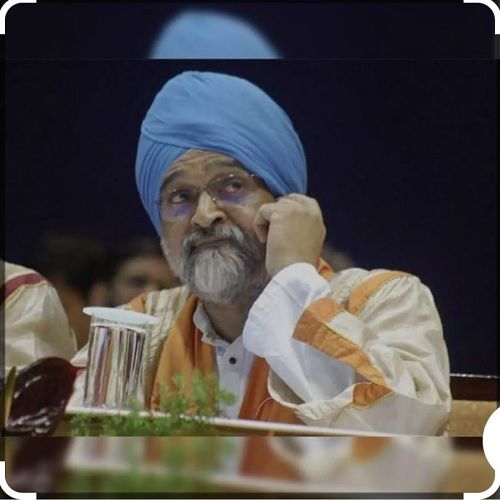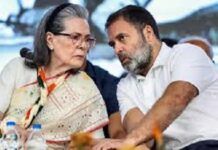ಬೆಂಗಳೂರು,ಫೆಬ್ರವರಿ,12,2025 (www.justkannada.in): ಪ್ರಗತಿಯ ವೇಗ ಹೆಚ್ಚಿಸುವ ನಿಟ್ಟಿನಲ್ಲಿ ದೊಡ್ಡ ರಾಜ್ಯಗಳ ವಿಭಜನೆ ಹಾಗೂ ಹಲವು ನಗರಗಳ ಅಭಿವೃದ್ಧಿ ಅತ್ಯಗತ್ಯ ಎಂದು ಹೆಸರಾಂತ ಅರ್ಥಶಾಸ್ತಜ್ಞ ಹಾಗೂ ಕೇಂದ್ರ ಯೋಜನಾ ಆಯೋಗದ ಮಾಜಿ ಉಪಾಧ್ಯಕ್ಷ ಮಾಂಟೆಕ್ ಸಿಂಗ್ ಅಹ್ಲುವಾಲಿಯಾ ಬುಧವಾರ ಪ್ರತಿಪಾದಿಸಿದರು.
ಅರಮನೆ ಮೈದಾನದಲ್ಲಿ ನಡೆಯುತ್ತಿರುವ ಜಾಗತಿಕ ಹೂಡಿಕೆದಾರರ ಸಮಾವೇಶ (ಜಿಮ್-25)ದಲ್ಲಿ ‘ಭಾರತದ ಆರ್ಥಿಕ ಅಭಿವೃದ್ಧಿ ಮತ್ತು ಜಾಗತಿಕ ಸವಾಲುಗಳು’ ಗೋಷ್ಠಿಯಲ್ಲಿ ಮಾತನಾಡಿದ ಅವರು, ಕೆಲವೇ ನಗರಗಳ ಅಭಿವೃದ್ಧಿಯಿಂದಾಗಿ ಹಲವು ಸಮಸ್ಯೆಗಳು ತಲೆದೋರಿವೆ ಎಂದರು.
ಅಭಿವೃದ್ಧಿಯ ಹಂಚಿಕೆ ಮತ್ತು ದಕ್ಷ ಆಡಳಿತ ದೃಷ್ಟಿಯಿಂದ ರಾಜ್ಯಗಳ ವಿಭಜನೆ ಅತ್ಯಗತ್ಯ. ಉತ್ತರ ಪ್ರದೇಶವನ್ನು ಹರಿತ್ ಪ್ರದೇಶ, ಪೂರ್ವಾಂಚಲ್ ರಾಜ್ಯಗಳಾಗಿ ವಿಭಜಿಸುವ ಬಗ್ಗೆ ಈ ಹಿಂದೆ ಪ್ರಸ್ತಾಪವಾಗಿತ್ತು. ಹಾಗೆಯೇ ಮಹಾರಾಷ್ಟ್ರದಲ್ಲೂ ವಿದರ್ಭ ಪ್ರಾಂತ್ಯವನ್ನು ಪ್ರತ್ಯೇಕ ರಾಜ್ಯವನ್ನಾಗಿಸಬೇಕೆಂಬ ಕೂಗು ಇದೆ. ರಾಜ್ಯಗಳಲ್ಲಿ ಕೇವಲ ಒಂದೇ ನಗರಕ್ಕೆ ಅಭಿವೃದ್ಧಿ ಕೇಂದ್ರೀಕರಿಸುವುದರಿಂದ ಹಲವು ಸಮಸ್ಯೆಗಳು ತಲೆದೋರಿವೆ ಎಂದು ವಿವರಿಸಿದರು.
ಅತಿಹೆಚ್ಚು ತಲಾದಾಯ ಹೊಂದಿರುವ ರಾಜ್ಯಗಳ ಪೈಕಿ ದೇಶದಲ್ಲೇ 4ನೇ ಸ್ಥಾನದಲ್ಲಿರುವ ಕರ್ನಾಟಕದ ರಾಜಧಾನಿ ಬೆಂಗಳೂರು ಜಾಗತಿಕ ಭೂಪಟದಲ್ಲಿ ಗುರುತಿಸಿಕೊಂಡಿರುವ ಪ್ರಮುಖ ನಗರವಾಗಿದೆ. ಬಹುಹಿಂದೆ ಖ್ಯಾತ ಉದ್ಯಮಿ ಜೆಆರ್ ಡಿ ಟಾಟಾ ಅವರು ಇಲ್ಲಿ ಭಾರತೀಯ ವಿಜ್ಞಾನ ಸಂಸ್ಥೆ ಸ್ಥಾಪಿಸಿದಾಗಿನಿಂದಲೂ ವಿಜ್ಞಾನ ಮತ್ತು ತಂತ್ರಜ್ಞಾನ ವಲಯದಲ್ಲಿ ಬೆಂಗಳೂರು ಪ್ರಮುಖ ಕೇಂದ್ರವಾಗಿ ಹೊರಹೊಮ್ಮಿದೆ. ಇಲ್ಲಿನ ಹವಾಗುಣವೂ ಅನುಕೂಲಕರವಾಗಿದ್ದು, ಬೆಳವಣಿಗೆಗೆ ಪೂರಕವಾಗಿದೆ ಎಂದರು.
ನಮ್ಮಲ್ಲಿ ನಗರಾಡಳಿತಕ್ಕೆ ಹೆಚ್ಚಿನ ಅಧಿಕಾರ ಇಲ್ಲ. ಬದಲಿಗೆ ರಾಜ್ಯ ಸರ್ಕಾರಗಳೇ ಮುಖ್ಯ ನಿರ್ಧಾರಗಳನ್ನು ಕೈಗೊಳ್ಳುತ್ತವೆ. ಇದು ಬದಲಾಗಬೇಕು. ಗಾಂಧೀಜಿಯವರು ಹಿಂದೆ ನೀಡಿದ್ದ ಹೇಳಿಕೆಯಂತೆ, ‘ನಿಜವಾದ ಭಾರತ ಗ್ರಾಮೀಣ ಪ್ರದೇಶದಲ್ಲಿದೆ’ ಎಂಬ ಸ್ಥಿತಿ ಈಗ ಇಲ್ಲ. ನಗರಗಳು ಮಿತಿಮೀರಿ ಬೆಳೆಯುತ್ತಿರುವುದು ಹಲವು ಸಮಸ್ಯೆಗಳಿಗೆ ಕಾರಣವಾಗಿದೆ. ಅಭಿವೃದ್ಧಿಯ ಹಂಚಿಕೆ ದೃಷ್ಟಿಯಿಂದ 2 ಮತ್ತು 3ನೇ ಸ್ತರದ ನಗರಗಳತ್ತ ಹೆಚ್ಚಿನ ಗಮನ ನೀಡಬೇಕಿದೆ ಎಂದು ಮಾಂಟೆಕ್ ಸಿಂಗ್ ಅಹ್ಲುವಾಲಿಯಾ ಹೇಳಿದರು .
ಅರ್ಥಶಾಸ್ತ್ರಜ್ಞ ಸಲ್ಮಾನ ಸೋಝ್ ಗೋಷ್ಠಿ ನಿರ್ವಹಿಸಿದರು.

ENGLISH SUMMARY..
Cut down large States into 2 or 3 to promote urbanisation: Montek Singh Ahluwalia
Bengaluru, Feb 12: Former Deputy Chairman of the erstwhile Planning Commission Mr Montek Singh Ahluwalia on Wednesday advocated carving out two to three States from large States like Uttar Pradesh to give a new impetus to urbanisation.
He also suggested picking up some tier-2 towns and developing them into “near-Metros”.
Mr Ahluwalia shared his views at a fireside chat with economist and author Salman Anees Soz on “Resilient Pathways: Charting Economic Growth Amid Global Challenges” at the Global Investors’ Meet ‘Invest Karnataka 2025’ here.
“We should seriously consider cutting down many of the larger states into two or three,” he said.
Mr. Ahluwalia recalled that former Uttar Pradesh Chief Chief Minister and BSP leader Mayawati had suggested splitting her State into three.
Had this been done, there would have been a political willingness instantly to create three new good cities, according to him. People have said this could be done in many other states. In Maharashtra, for example, there are people who said that the Vidarbha region should be made a separate state with Nagpur as its capital.
“The main reason we have to think about this that the resistance to doing….building a new city….land acquisition that it involved sharply goes gown when whoever is doing it says that it’s a capital of a new state,” Ahluwalia said.
But he acknowledged that interesting reforms and tough decisions such as this are not politically easy.
Mr. Ahluwalia also noted that all our States are highly centralised.
But he pointed out there is evidence to suggest that performance of new states has improved.
Responding to a question on rising public debt, he said the States have all become fiscally very weak because of scale of debt relative to both revenue generation and their gross domestic product is too high.
He expressed the view that the nature of reforms needed for India to achieve an eight per cent annual growth for two decades to realise its vision of ‘Viksit Bharat’ by 2047 have not been clearly spelt out and said there are some challenges to achieve this goal.
Earlier in 1991, initiating reforms was easy because the world was speaking one language.
“We started the reforms after Eastern Europe had abolished communism…there was only one thing to do which was integrating with global market. That has become much more complex now,” he said.
Mr. Ahluwalia said geopolitical tensions are now rising, the US has its own porblems not only with its closest allies, like Canada and Mexico, but also with China. China is cozying up to Russia. Russia is becoming more dependent on China. Europeans are very scared of Russia. They are not that bothered about China. “India is faced with a world all of a sudden fragmanted. We didn’t have that problem in 1991 at all.”
If India is grow at eight per cent then the urban population is going to grow very rapidly, he opined.
Gandhiji had said India lives in its villages. and many people still regard that as a sort of romantic vision, he said. “I think you have to recognise that India will not be ‘viksit’ if it does not largely reduce the numbers staying in villages.” Good Gandhians should recognise that this is not undermining the views of Mahatma Gandhi, who expressed these views 100 years ago but did not mean that it will continue to do so 100 years later, Mr. Ahluwalia pointed out.
Key words: GIM Invest Karnataka, Montek Singh Ahluwalia









